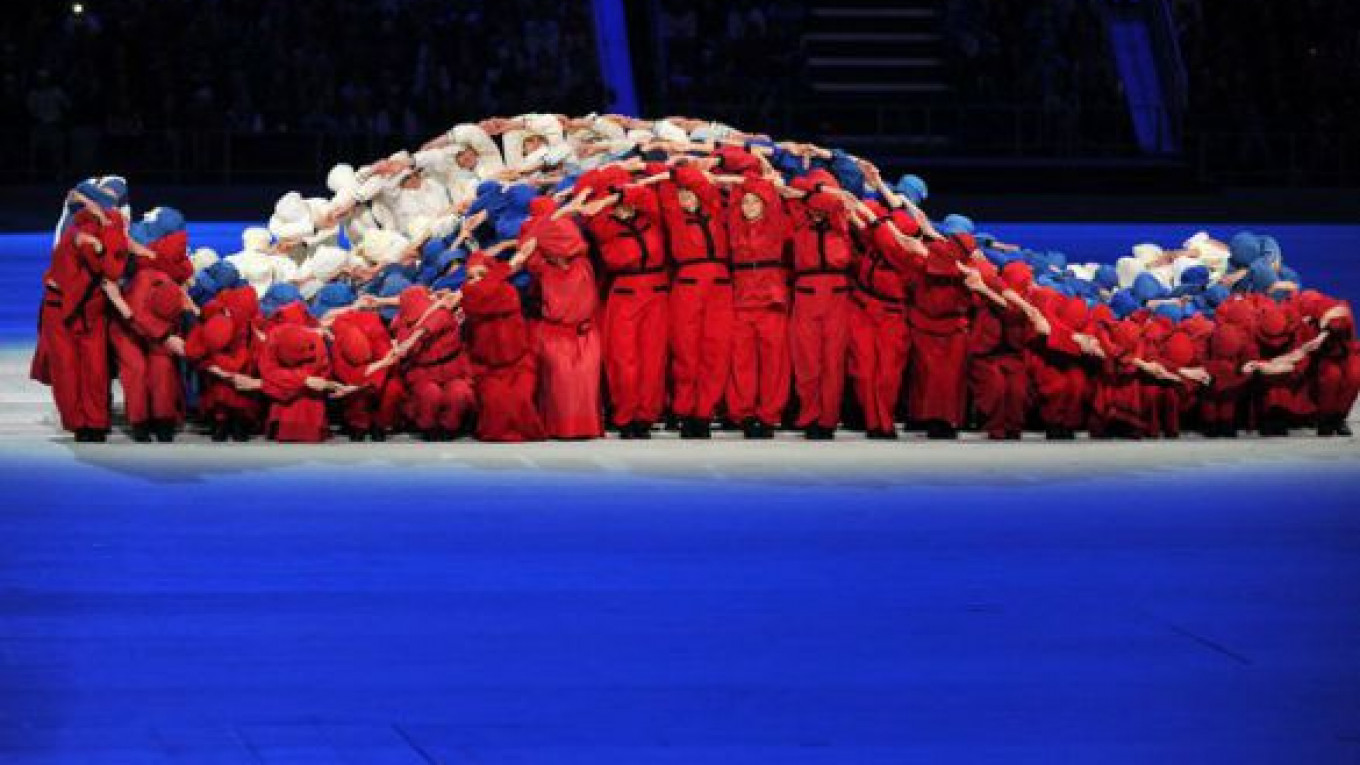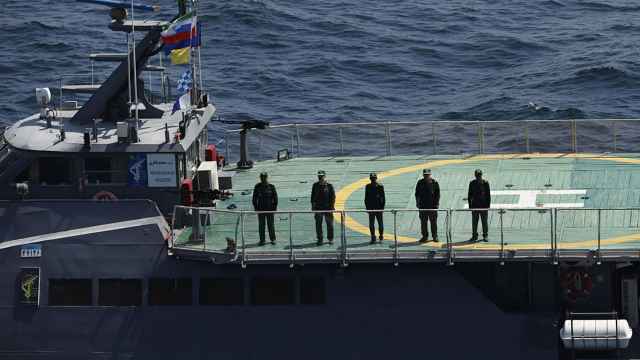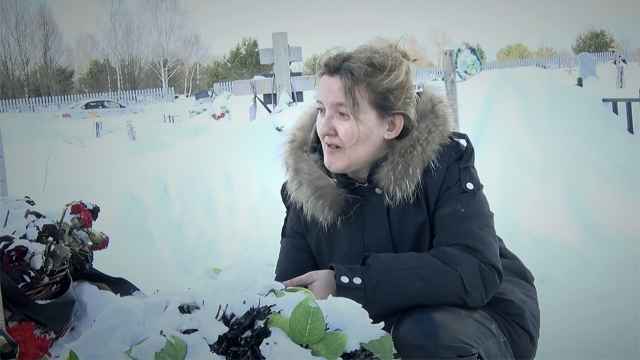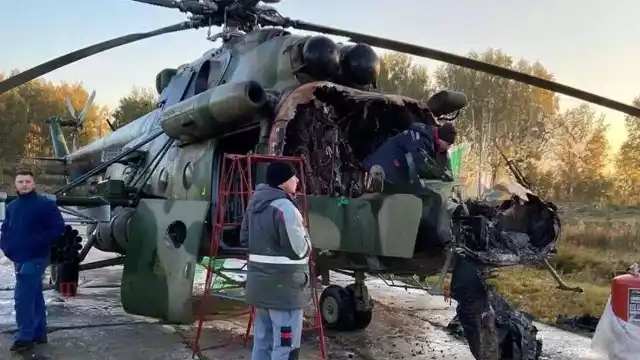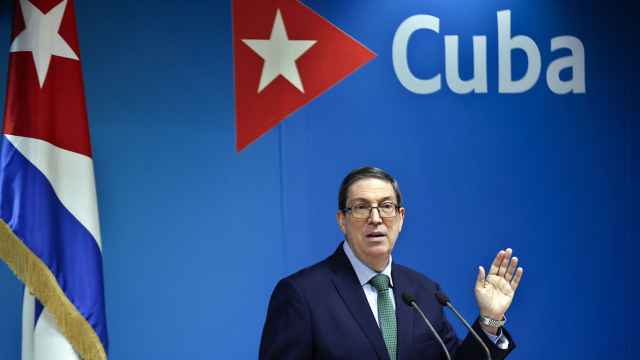The 11th Winter Paralympics officially started in Sochi on Friday night with Russia keen to repeat its successful performance in last month's Winter Olympics, in which it topped the medal table, and showcase a perceived transformation in Russian attitudes to people with disabilities.
While the Winter Olympics got under way in February amid concerns about the threat of terrorist attacks, the Paralympics opening ceremony was played out against the backdrop of the crisis in the Ukrainian region of Crimea, just under 500 kilometers from the host city.
As was the case in February, officials from a number of nations, including the U.S. and Britain, decided not to attend. Their reasons for shunning the ceremony then were either not explained or attributed to schedule clashes, but Russia's occupation of the Crimean peninsula was the unambiguous demotivating factor this time around.
The Ukrainian Paralympic team waited until Friday to announce its decision to participate in the Games, having earlier touted the possibility of a boycott. However, the Ukrainian Paralympic Committee's president, Valeriy Suskevich, warned that his country's athletes would reverse their decision if the military conflict escalates, BBC reported.
Spectators at the Fisht Olympic Stadium on Friday evening were treated to a typically exhilarating opening ceremony that was inspired by the theme of inclusiveness in society and changing perceptions.
Creative director Konstantin Ernst said the aim was to highlight what he feels has been a metamorphosis in Russian people's attitudes to people with disabilities since the Games were awarded to Sochi in 2007.
“We focused on passing on that feeling, and our ceremony is called ‘Breaking the Ice,'” Ernst said, RIA Novosti reported Friday. “It explains how important it is to break down comprehension barriers between people.”
The ceremony featured a smoldering appearance by the mythical firebird from Russian folklore and a performance by world-renowned soprano Maria Guleghina, who was whisked about the stadium on an icebreaker — representing the breaking down of barriers — while singing “Cossack Lullaby,” based on a poem by Mikhail Lermontov.
About 150 people with disabilities participated in the ceremony, including singer Yulia Samoylova, who shed tears of joy during her performance, and award winning accordionist Alexei Levchuk.
Organizers have championed the Games as a watershed moment for Russia in terms of changing people's outlook and improving facilities for the country's 13 million disabled people.
Dmitry Chernyshenko, president of the Sochi 2014 Olympic Organizing Committee, proudly declared Sochi the first Russian city “without barriers,” a slogan representing the achievement of total access to public amenities for disabled people.
Chernyshenko also said that the Games marked the beginning of a new history for Russia — one without barriers and stereotypes. “The Games have already changed us; we've become kinder and more attentive to one another,” he said.
Sir Philip Craven, president of the International Paralympic Committee, told the crowd that the realization of the Sochi 2014 Paralympics was proof that dreams can come true.
He pointed to the fact that the Soviet Union turned down the chance to host the Paralympics in 1980, when the Summer Games were held in Moscow, and said that a monumental transformation had taken place since then.
Craven also called on those who experience the Games to do so with “barrier free minds.”
However, optimism that the standard of living for people with disabilities in Russia will get better has not been shared by some observers, who think that residents living outside the city's tourist zone won't see any real benefits.
Even during last month's Winter Olympics, visitors reported numerous teething problems in the Olympic Park, such as ramps being difficult to find and not flush with the ground, and cables blocking walkways. Organizers have said that everything will be in order by the start of the Paralympics, but concerns persist that Sochi's infrastructure won't hold up to what will essentially be its first real test.
Competition starts on Saturday morning and runs until March 16, the date of the closing ceremony, with Sochi welcoming the largest number of competitors to a Paralympic Games since Toronto in 1974. Nearly 600 athletes from 45 countries will be vying for the 72 gold medals on offer over 10 days.
President Vladimir Putin, who declared the Games officially open, has called on Russians to cheer the country's Paralympic athletes to the top of the medal charts. "We can hope for a victory. These guys are ready. It's all about luck and the passionate support of the fans," Putin said Thursday, Interfax reported.
At the 2010 Games in Vancouver, Russia won 38 medals, 12 of them gold, to finish second in the standings only to Germany. The team's medal hopefuls include skiers Roman Petushkov, Mikhalina Lysova and Nikolai Polukhin.
Brazil, Turkey and Uzbekistan are competing for first time, and a new event will be inaugurated at the Sochi Games — snowboarding for athletes with lower limb impairments.
A Message from The Moscow Times:
Dear readers,
We are facing unprecedented challenges. Russia's Prosecutor General's Office has designated The Moscow Times as an "undesirable" organization, criminalizing our work and putting our staff at risk of prosecution. This follows our earlier unjust labeling as a "foreign agent."
These actions are direct attempts to silence independent journalism in Russia. The authorities claim our work "discredits the decisions of the Russian leadership." We see things differently: we strive to provide accurate, unbiased reporting on Russia.
We, the journalists of The Moscow Times, refuse to be silenced. But to continue our work, we need your help.
Your support, no matter how small, makes a world of difference. If you can, please support us monthly starting from just $2. It's quick to set up, and every contribution makes a significant impact.
By supporting The Moscow Times, you're defending open, independent journalism in the face of repression. Thank you for standing with us.
Remind me later.


